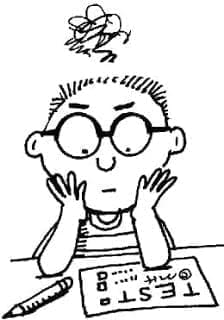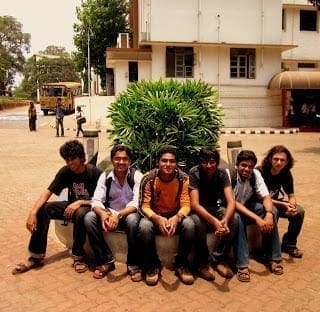
Not only must the student cover the material upon which he will be tested, but he must recognize the fact or principle as posed by the question. The best preparation for the former would begin with reports, homework, quizzes and tests given during the semester; and facility with the latter can be obtained by rewriting questions and adding new ones from the studied material. The best preparation for test taking is to take tests. What makes better sense than to make up test questions and thus critically examine the material of the course in the context of the examination itself?
Should the student have reasonable assurance that he will have an essay type final, he would be guided by the types of essays posed during the courses. Generally, the same questions would not appear again, but even if they should, the instructor would book justified in expecting more depth in the answers at the end of the semester. The student should be able to select 10 or 20 topics and v/write them in the form of essay questions. Minimum practice would involve outlining the answers, and in at least a few cases, writing out the complete essay for practice and to build confidence. There is the matter of English language, construction, correct grammar, and spelling which might have a greater or less influence in the evaluation of an answer to any given question.
Answer Directly
Then, too, some students seem to have a knack of avoiding a direct answer to an essay question. It is useful to outline the answer including such items as definitions of terms and such information as answers the “who,” “what,” “when,” “where,” “why.” and “what of it?” It is well to hold in mind that you are really trying to convince the instructor that you have a suitable grasp of his subject and that this is your means of telling him so. In practicing, at least, one could pretend that he is explaining in the clearest possible manner a point to someone with no prior knowledge about the topic.
With the problem-type examinations, it is assumed that skill has been developed during the semester with problems. Such courses as mathematics, physics, and chemistry, etc.. Utilize problems to illustrate principles and the student is expected to have a grasp of the various types. These problem types can readily be identified and isolated. The problem on the examination is representative of a type and the student should be able to recognize it as such. He should therefore practice with various modifications of the usually stated form so that he will not be caught off guard in the testing situation.
Memorizing
Memorizing is not in as great disrepute as some would have us believe. It makes good sense to memorize facts in relation to each other and use the powerful tool of association. However, students should be careful of definitions and terms. This is a particular downfall in science courses. In survey or initial courses in a sequence, terminology and facts lend themselves to testing by objective type que.stions. There have been numerous pamphlets written for college .Students on how to take and prepare for examinations which include tips on this type of test question. Key words and clues can be important. Efficiency and “test-wiseness” can be learned in taking objective-type examinations. Multiple-choice questions, for example, frequently have “attractive ” choices to attract the uninformed or the unwary. For example, examine the following question:
The Vikings discovered America in approximately
(a) 400
(b) 1000
(c) 1492
(d) 1620
(e) 1942
Note the familiar dates. Note the transposition of some digits in two choices. To the student who has had the course only two choices would be reasonable, even if he did not remember the exact date. Thus a 50-50 chance of getting the answer is made available rather than only a 20 per cent chance by pure guess. Better than that, had the student emphasized relationships in his reviewing sessions, he can probably reason out the answer, thus eliminating most of the chance.
What Not To Do
Students might give some consideration to the following suggestions of many which could be offered for the test day. Itself. If one or more of them prove to be effective for you, incorporate them into your’ own practices. Avoid:
(1) being late to the examination.
(2) taking just any seat In the examination room (unless seats are assigned).
Seat yourself to give the greatest comfort, light, air, and ease of reading charts, etc. Test taking is a skill in itself.
Studying for tests requires skill. In any skill, practice is the key to success. Time and effort are not enough, however. Just as in typewriting, playing a musical instrument, or in a sport certain fundamentals must be adhered to for best performances. Erratic study habits will generate poor results.
The student is encouraged to give much thought to his study methods, for just as the finest tools vnM give poor results if not effectively used, so the finest mind will return little satisfaction learning if not properly utilized.




Be the first to comment